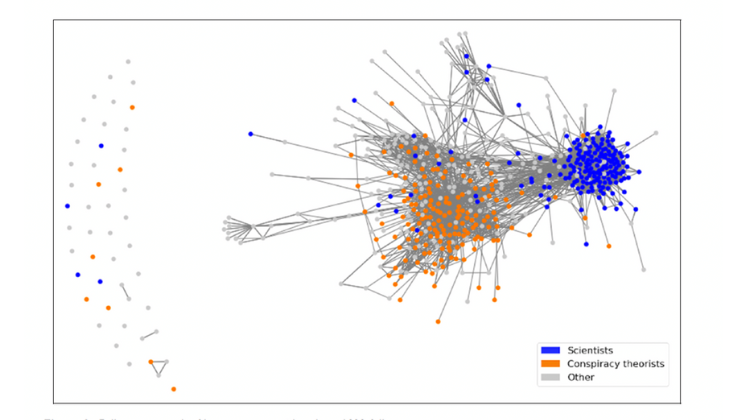2023 has been a year of settling norms in open access publishing and a gradual shift in focus from the paradigm of open access to one of open research more broadly. As ever, this has resulted in wide-ranging debates around what form academic publications should take and what kind of institutions and social organisations that support them. The second review of 2023 brings together a selection of views and research on academic publishing that we featured on the LSE Impact Blog over the past year. Want to find even more, you can read a selection of posts on academic publishing and open access via the links and all of our annual reviews here.
 The benefits of Open science are not inevitable: monitoring its development should be value-led
The benefits of Open science are not inevitable: monitoring its development should be value-led
Open science is increasingly becoming a policy focus and paradigm for all scientific research. Ismael Rafols, Ingeborg Meijer and Jordi Molas-Gallart argue that attempts to monitor the transition to open science should be informed by the values underpinning this change, rather than discrete indicators of open science practices.
 To improve social science publications let’s lose the discussion section
To improve social science publications let’s lose the discussion section
In quantitative social science papers, the discussion section serves as a place to analyse and put findings into a wider context. Philipp Schoenegger and Raimund Pils argue that rather than adding value, these discussions can leave findings open to the cognitive biases of researchers and that much could be gained from separating them out of the research paper as a distinct form of academic writing.
 Do journals need societies, and do societies need journals?
Do journals need societies, and do societies need journals?
Historically, there has been a tight link between journals, journal publications and a community of scholars working in specific fields of research who contribute to and manage them. As journal publishing has become a global undertaking and moreover, an undertaking that is increasingly mediated through online digital interactions, Aileen Fyfe asks, do we need to rethink the structure of the learned societies that underpins them?
 Greater Expectations – The academic library should be a benefactor for community-owned publishing
Greater Expectations – The academic library should be a benefactor for community-owned publishing
Across countries in the global north the transition to open access to research has in recent years been driven largely through library consortia and national institutions striking transformative agreements with commercial publishers. Drawing on recent work on The University of Sheffield’s content strategy, Peter Barr argues that academic libraries can play a larger role in fostering community owned scholarly publishing.
 What exactly is a PhD by publication?
What exactly is a PhD by publication?
A PhD by publication, that is, a PhD submitted in the form of a dossier of published papers with varying degrees of connective writing, has become an increasingly common thesis format. However, as Lynn P. Nygaard and Kristin Solli point out, there are significant variations in how these pieces are put together. Outlining these differences and providing a checklist, they show the key questions students should ask when looking to undertake this kind of PhD.
 Lack of sustainability plans for preprint services risks their potential to improve science
Lack of sustainability plans for preprint services risks their potential to improve science
During the COVID-19 pandemic, preprint servers became a vital mechanism for the rapid sharing and review of vital research. However, discussing the findings of a recent report, Naomi Penfold finds much of the infrastructure supporting non-commercial preprint publications is precariously governed and at risk of being acquired by commercial publishers.
 Female researchers are less influenced by journal prestige – will it hold back their careers?
Female researchers are less influenced by journal prestige – will it hold back their careers?
Drawing on a natural experiment that occurred when German institutions lost access to journals published by Elsevier, W. Benedikt Schmal shows how female researchers made significantly different publication choices to their male counterparts during this period.
 How can open data sharing policies be more attentive to qualitative researchers?
How can open data sharing policies be more attentive to qualitative researchers?
Open data practices are largely conceived and managed in ways that support quantitative, rather than qualitative data. Susie Weller outlines how an ethics of care is essential to making open qualitative data practical and ethical.
 Open access ‘at any cost’ cannot support scholarly publishing communities
Open access ‘at any cost’ cannot support scholarly publishing communities
Kaitlin Thaney argues the current momentum building for “no pays” academic publishing models and establishing the “reasonable costs” of publication, present opportunities to rebalance the inequities, costs, and power dynamics initially bred by the push towards Open Access “at any cost” over the past two decades.
The content generated on this blog is for information purposes only. This Article gives the views and opinions of the authors and does not reflect the views and opinions of the Impact of Social Science blog (the blog), nor of the London School of Economics and Political Science. Please review our comments policy if you have any concerns on posting a comment below.
Image credit: LSE Impact Blog via Canva.







